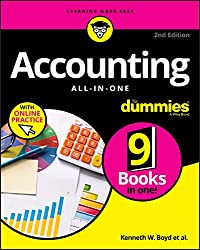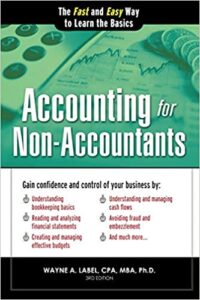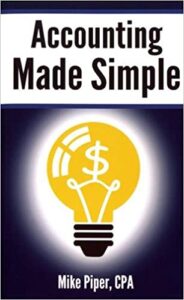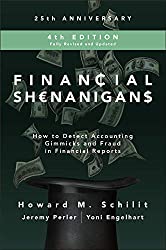Having the right accounting books can help ensure that your finances are on point whether you’re a solo business owner, a budding bookkeeper, or a seasoned CPA. By reading a book, it is important, and sharp accounting skills are crucial if you want to succeed in business.
With so many accounting books out there – many of them of the standard textbook variety – we found the best ones that are both practical and readable.
- BEST OVERALL: Accounting All-in-One for Dummies
- BEST FOR BEGINNERS: Accounting for Non-Accountants
- BEST FOR INTERMEDIATES: Barron’s Accounting Handbook
- BEST FOR SELF-EMPLOYED: Accounting Made Simple
- BEST FOR ACCOUNTANTS: Accounting Best Practices
- BEST FOR SMALL BUSINESS OWNERS: Accounting Quick Start Guide
- BEST FOR INVESTORS: Financial Shenanigans
- BEST FOR CORPORATE MANAGERS AND EXECUTIVES: Financial Intelligence
Note to Readers: This article may contain links from our partners. We may receive a commission for purchases made through these links at no extra cost to you.
BEST OVERALL: Accounting All-in-One for Dummies
Your all-in-one accounting resource
If you’re brand new to accounting, this book can give you an overview of accounting terms and practices, but “Accounting All-in-One for Dummies” is more akin to an accounting course in book form or just need a refresher course, consider this the most comprehensive, reader-friendly guide. This book covers the basics in laymen’s terms to provide solid accounting knowledge. It’s thorough yet accessible and is technically nine “mini-books” in one which includes nine books and access to accompanying online quizzes, offers readers a comprehensive introduction to accounting.
Author Kenneth W. Boyd will teach you everything from how to set up your accounting system to working with balance sheets and income statements. There are many types of accountants and fields in which accountants work, from tax accounting to government fraud detection to working in a small business. There are also more advanced sections on making financial business decisions and detecting fraud, as well as other accounting niches. This books will find value in this book, whether it’s used as a training manual or a handy reference for newbies and pros.
We highly recommend this set for anyone considering a career in accounting as it truly provides the materials necessary to understand not only the nuts and bolts of accounting practices but also what it’s like to actually be an accountant. As a bonus, you’ll also get access to online quizzes that correspond to each book section to make sure your newly-developed skills are sinking in.
A Quick, Compact, and Easy-to-Understand Resource for Non-Accountants! The perfect financial accounting guide for beginners!
Accounting for Non-Accountants is the must-have guide for all of us who have never taken an accounting class, are mystified by accounting jargon, and have no clue about balance sheets, income statements, payroll management, corporate taxes, or statements of cash flows. This simple to use accounting book is bookmaking made simple.
Whether you own a business, plan on starting one, or just want to control your own assets, you’ll find everything you need to know:
- How to prepare and use financial statements
- How to control cash flows
- How to manage budgets
- How to use accounting ratios
- How to deal with audits and auditors interpret financial statements
BEST OF SELF-EMPLOYED: Accounting Made Simple
Accounting Made Simple breaks down everything from understanding and creating financial statements to the difference between the cash method and the accrual method. It also touches on other big financial concepts like amortization, depreciation, and more in a way that a novice can understand. Its author Mike Piper is a licensed CPA, who strives to help solo practitioners learn the ropes of accounting. This book includes helpful examples to bring these concepts to life.
BEST FOR INVESTORS: Financial Shenanigans
The bestselling classic from the “Sherlock Holmes of Accounting”―updated to reflect the key case studies and most important lessons from the past quarter century.
- Corporate cultures that incentivize dishonest practices
- The latest tricks companies use to exaggerate revenue and earnings
- Techniques devised by management to manipulate cash flow as easily as earnings
- Companies that use misleading metrics to fool investors about their financial performance
- How companies use acquisitions to hide deterioration in their underlying business
Sources of Best Sellers in Accounting Books
Newsletter
GET THE LATEST NEWS FIRST
Signup for our newsletter to get the latest news, updates and reading tips weekly.




